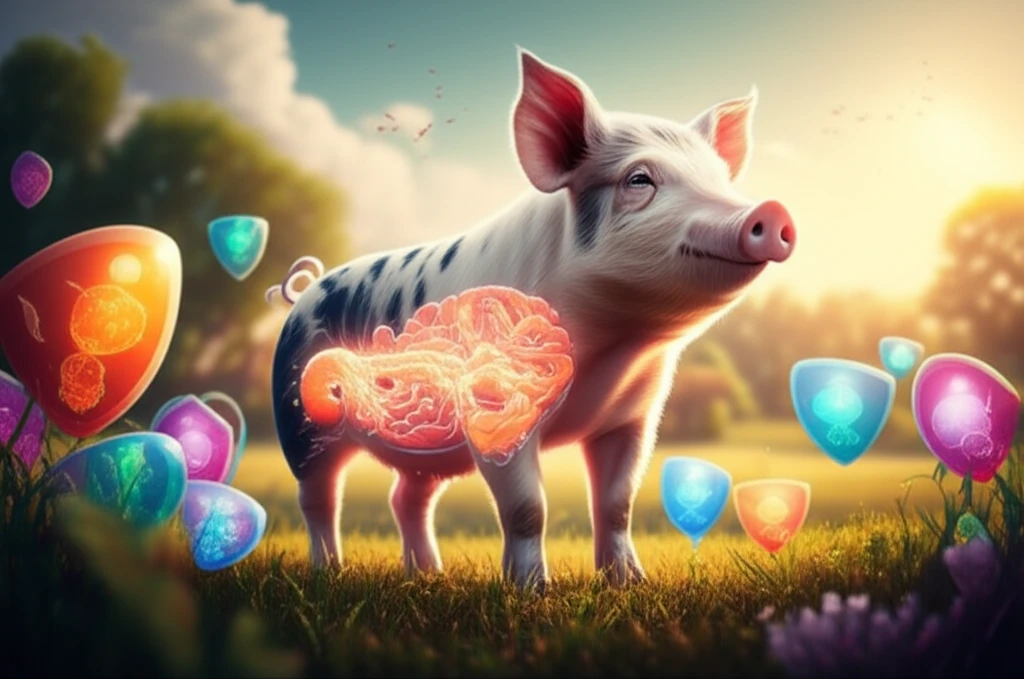
Unlocking Piglet Power: How Mycotoxin Binders are Revolutionizing Gut Health and Growth
"Discover how innovative mycotoxin binders are changing the game for piglet health, boosting growth, and paving the way for a healthier future for these animals and the industry."
In the world of animal agriculture, the health and well-being of livestock are paramount, impacting everything from productivity to profitability. For piglets, the early stages of life are critical, and ensuring optimal gut health is a key factor in achieving robust growth and overall resilience. However, a common challenge in pig farming is the presence of mycotoxins, harmful substances produced by fungi that can contaminate animal feed. These mycotoxins pose a significant threat to piglet health, leading to reduced growth, weakened immune systems, and various other health issues.
Recent research has unveiled a promising solution: mycotoxin binders. These innovative additives are designed to neutralize the adverse effects of mycotoxins, offering a lifeline to piglets. This article explores the latest findings on mycotoxin binders, focusing on their impact on gut health, growth performance, and the intricate mechanisms through which they work. We'll examine the science behind these binders and provide valuable insights into their role in ensuring healthier, more productive piglets.
This exploration delves into the details of how mycotoxin binders improve growth rates in piglets, improve gut health, and increase the expression of tight junction proteins. We'll discuss the implications of this research, highlighting the benefits for both the animals and the broader agricultural industry. Let's unlock the secrets to piglet power and discover how mycotoxin binders are revolutionizing the world of pig farming.
The Mycotoxin Menace: Understanding the Threat to Piglet Health

Mycotoxins are naturally occurring toxins produced by various fungi that can contaminate crops and animal feed. These insidious substances pose a significant threat to piglet health, leading to a range of adverse effects. Deoxynivalenol (DON), a prevalent mycotoxin found in grains, is particularly harmful. Pigs, being highly sensitive to DON, can experience reduced feed intake, emesis (vomiting), and impaired immune function when exposed.
- Reduced feed intake
- Emesis (vomiting)
- Impaired immune function
- Disruption of the intestinal lining
- Growth retardation
- Increased susceptibility to diseases
- Triggering of inflammatory responses
A Brighter Future for Piglet Health
The research on mycotoxin binders offers a glimmer of hope for pig farmers and the entire animal agriculture industry. By understanding the detrimental effects of mycotoxins and embracing these innovative solutions, we can ensure healthier, more productive piglets. Mycotoxin binders not only boost growth rates but also contribute to the overall well-being of these animals. As we continue to delve deeper into the science and explore the full potential of mycotoxin binders, we move closer to a future where piglets can thrive, and the agricultural industry can flourish. The journey towards optimized animal health is ongoing, with advancements like mycotoxin binders leading the way toward a more sustainable and prosperous future for both animals and humans.
